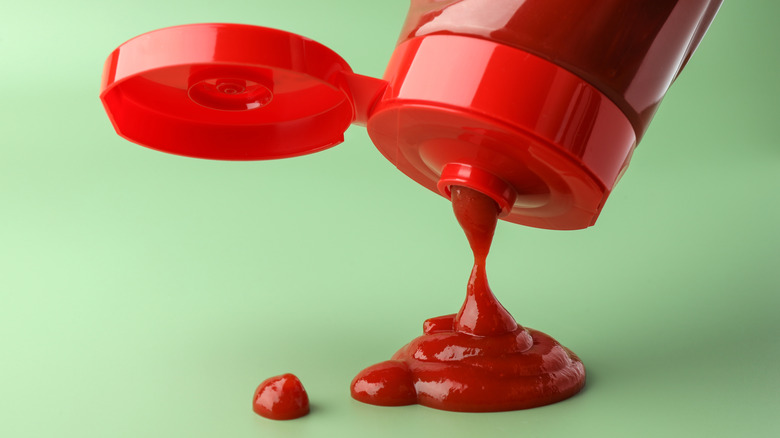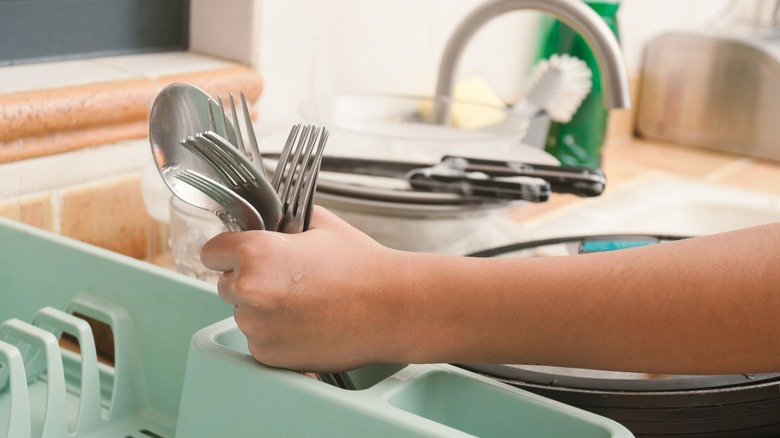Ketchup Is Your Secret For Spotless Silverware
Can you imagine a world without ketchup; that perfectly sweet and tangy condiment which has the power to transform even the driest plate of fries into pure happiness? Never mind the moment you drizzle it onto a hot dog and take that first bite. (You can already feel your mouth watering, can't you?) Still, once you hear how well it shines a silver spoon, you'll be the most hungry to clean with it.
Rumor has it, ketchup has a fascinatingly bizarre history of evolution. Ancient records from 300 B.C. suggest that it was actually southern Chinese chefs who first came up with it. They used it as a dipping sauce and called it kê-tsiap. But it wasn't really tomatoes that they relied on for their recipe, just good old delicious fermented fish brine. It took a couple of millennia for ketchup to become the beloved classic we know today. This happened when American scientist and Philadelphia native James Mease introduced the first tomato-based formula to the world in 1812.
Ever since, ketchup has become a global sensation, with people constantly finding new ways to enhance not only its flavor, but also its purpose. Did you know ketchup can help clean burnt sugar from a pan? Well, it turns out that's not the only thing it can tackle. Grab your silverware because ketchup is, in fact, a very powerful cleaning agent. And the best part? No need to do any scrubbing. Just let your knives and spoons soak in it for a while, as this amazing condiment works its magic.
How ketchup gets silverware spotlessly clean
While ketchup may be a nightmare for clothing, leaving behind stubborn stains that can take ages to clean, it's surprisingly good at handling dirty silverware and even copper kitchenware. Along the lines of everything you ever wanted to know about ketchup, the ultimate secret to why it is so effective lies in its acidity.
Ketchup has a pH of between 3.6 and 3.9, which — given how a neutral pH is around 7 — makes it highly acidic. This stems from its two main ingredients: tomatoes and vinegar. So aside from the pectic acid naturally found in tomatoes, ketchup's acidity is significantly boosted by vinegar (acetic acid), which is added to prolong its shelf life. Therefore, when ketchup comes into contact with the oxidized layer on tarnished silverware, it reacts with it. As a final result, it breaks it down effectively without damaging the material.
Now that you're in the know, you're probably tempted to put this clever hack to the test. But how can you make sure it's done right? Here's the beauty of it; It's easy. Open your kitchen cabinet and take out a dish or a plastic pot. After you place the silverware inside, reach for that ketchup bottle in the fridge and drizzle it on top, ensuring the silverware is fully soaked. Finally, just rinse and buff 10 minutes later, and watch your items shine like they just came out of the box.

